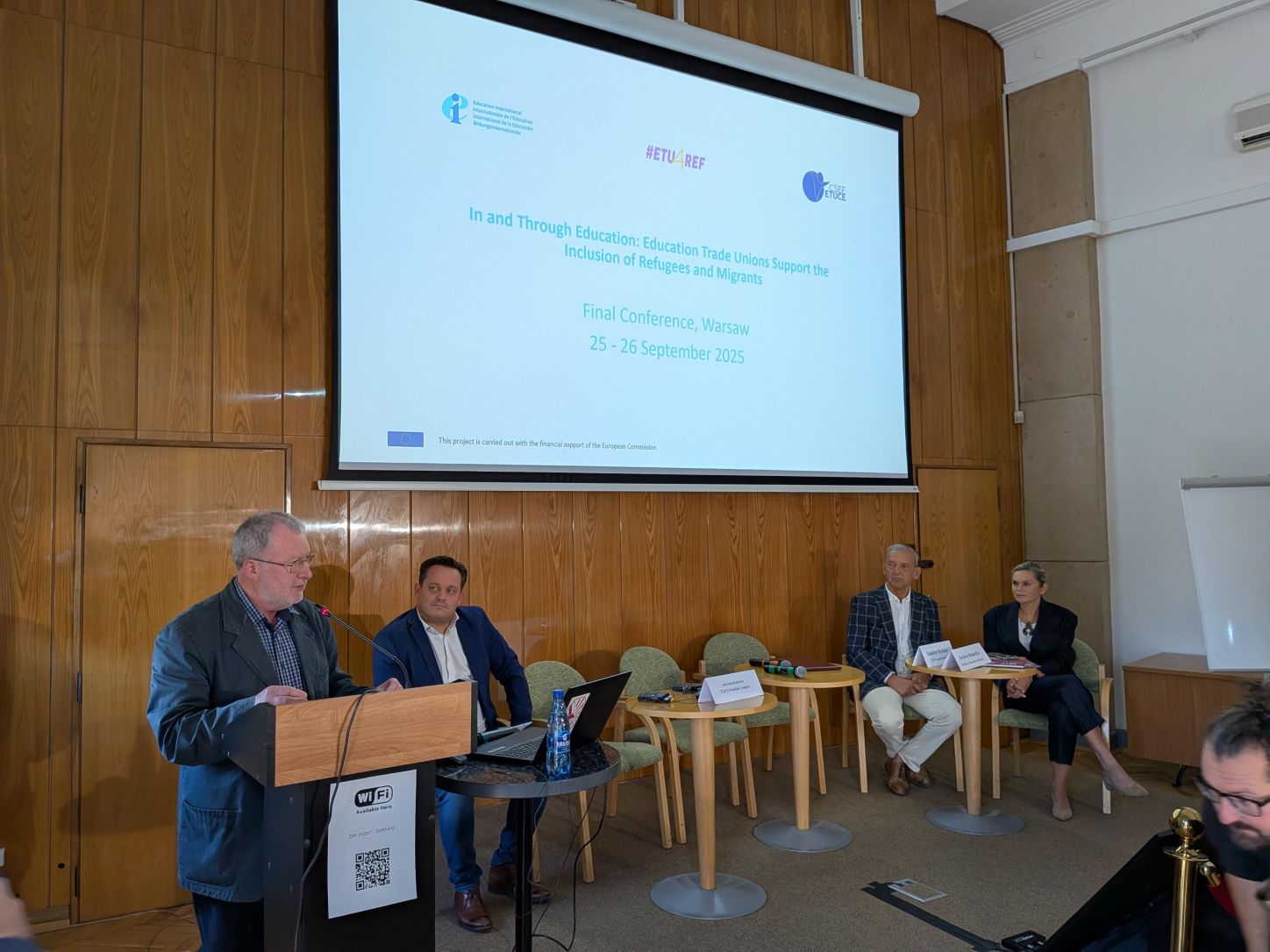
Closing Conference : Education Trade Unions Call for Stronger Action on Refugee and Migrant Inclusion
On 25–26 September 2025, education trade unions, policymakers, and researchers gathered in Warsaw for the final conference of the ETU4REF project – “In and through education: Education Trade Unions support the inclusion of refugees and migrants.”
Setting the tone
The conference opened with Barbara Nowacka, Polish Minister of Education, alongside John MacGabhann, ETUCE President, and Sławomir Broniarz, President of ZNP, who underlined the political responsibility to ensure that schools are places of safety and opportunity for all children, regardless of background. Their message was clear: governments and unions must work together to guarantee access to education as a fundamental right.
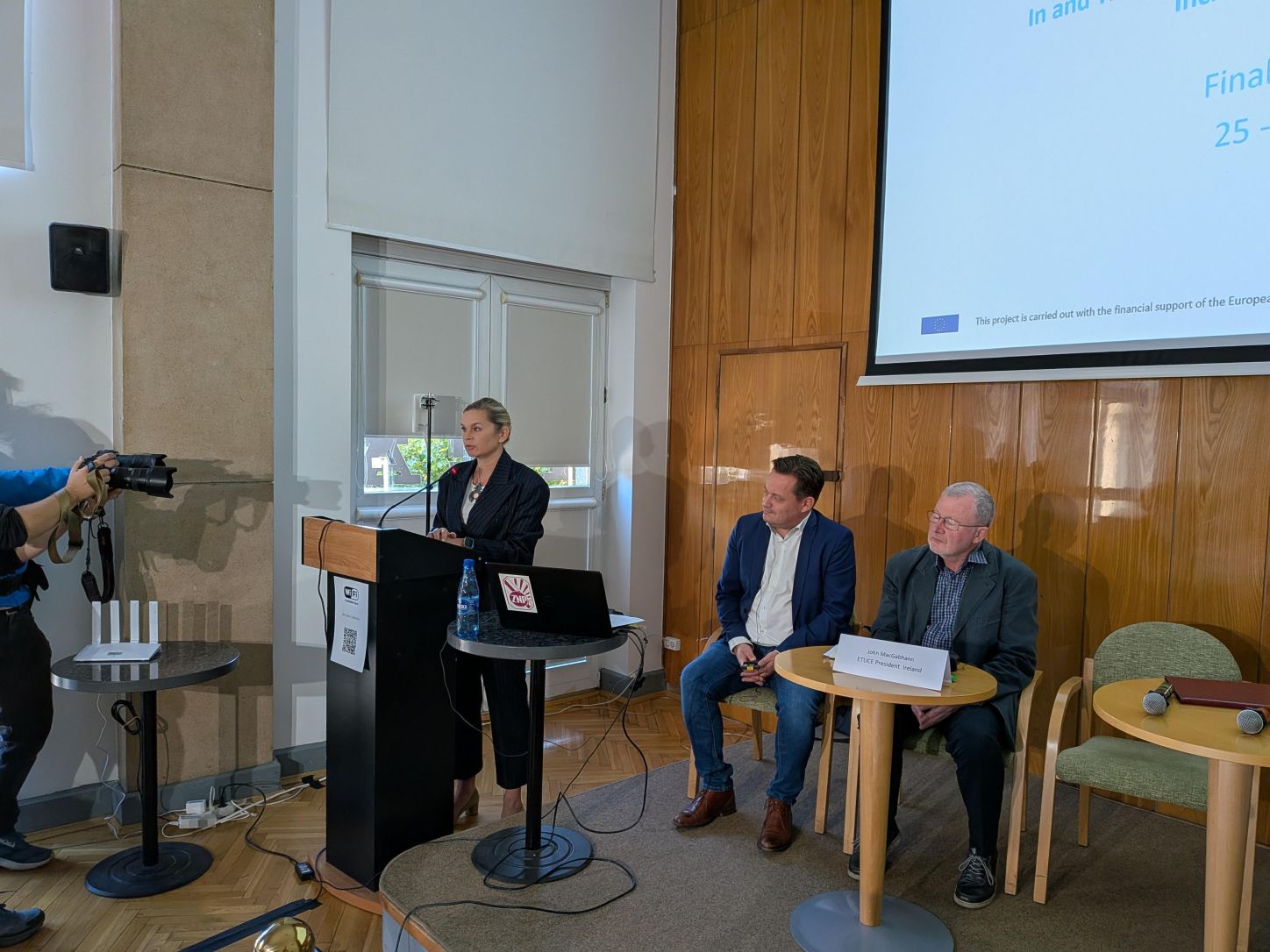
Research results: unions on the frontline
Jelmer Evers, ETUCE European Director, presented the outcomes of the ETU4REF project, followed by Dominique Danau (SAGO Research) with the main findings of a Europe-wide study. While many unions have developed policies on inclusion, migrant and refugee children are still far more likely to be excluded from education, and teachers with migrant backgrounds often face barriers to recognition. The research called for stronger advocacy, systematic training for teachers, and structural reforms to remove obstacles.
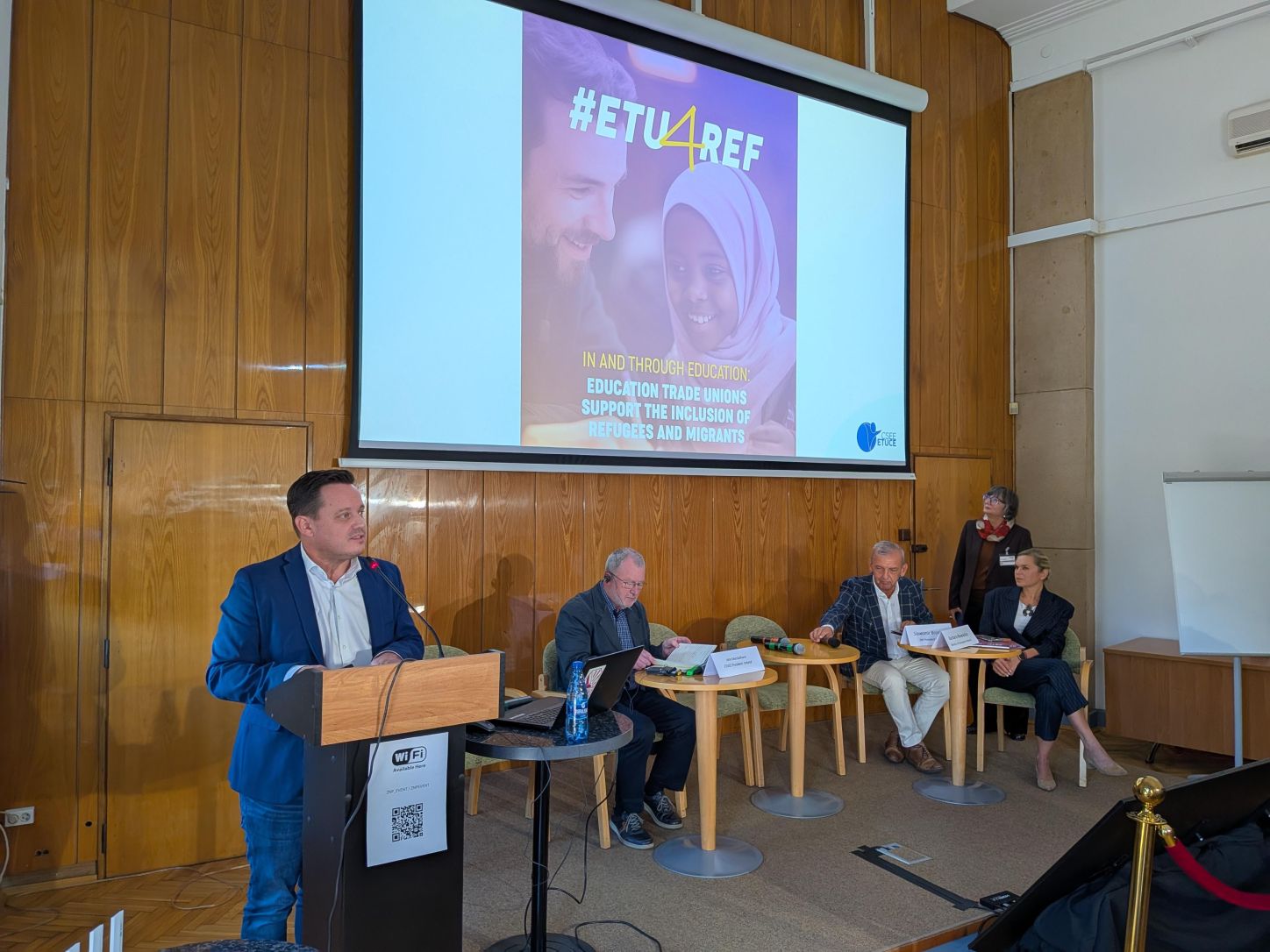
From national realities to international perspectives
The first day spotlighted Poland, where thousands of Ukrainian students have entered schools since 2022. In a panel led by Paulina Piechna-Więckiewicz, Deputy Minister of Education responsible for inclusion and migration, participants heard about the strain on teachers and the urgent need for resources and long-term strategies. Testimonies from Ukrainian students themselves gave a human face to the challenges.
Day two broadened the view: João Costa from the European Agency for Special Needs and Inclusive Education and Dr Paweł Sękowski of Jagiellonian University stressed the European and historical dimensions of refugee inclusion, reminding participants that education systems must be built to adapt in times of crisis.
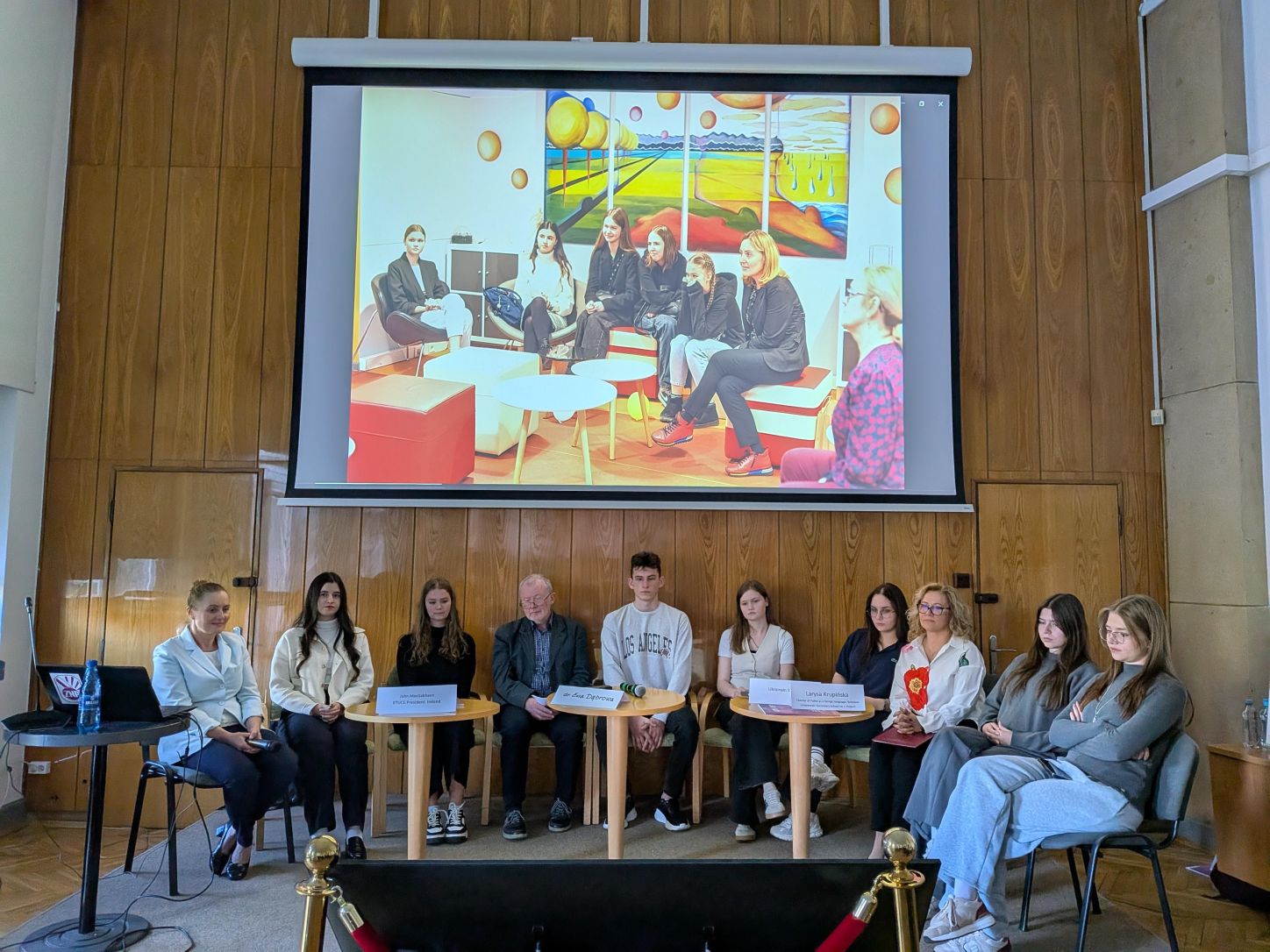
Union experiences and practical tools
Trade unions presented concrete tools to strengthen inclusion. The ETU4REF Massive Open Online Course (MOOC), introduced by Giacomo Ottonello (Global Campus of Human Rights), offers union activists practical training and peer learning on refugee and migrant inclusion.
Good practices were also shared. Fred Grindrod (NASUWT, UK) showcased the Refugee Welcome Schools programme, an accreditation scheme that mobilises whole school communities to welcome refugee students. Examples from Italy and Spain added further perspectives on how unions can drive positive change at school and system level.
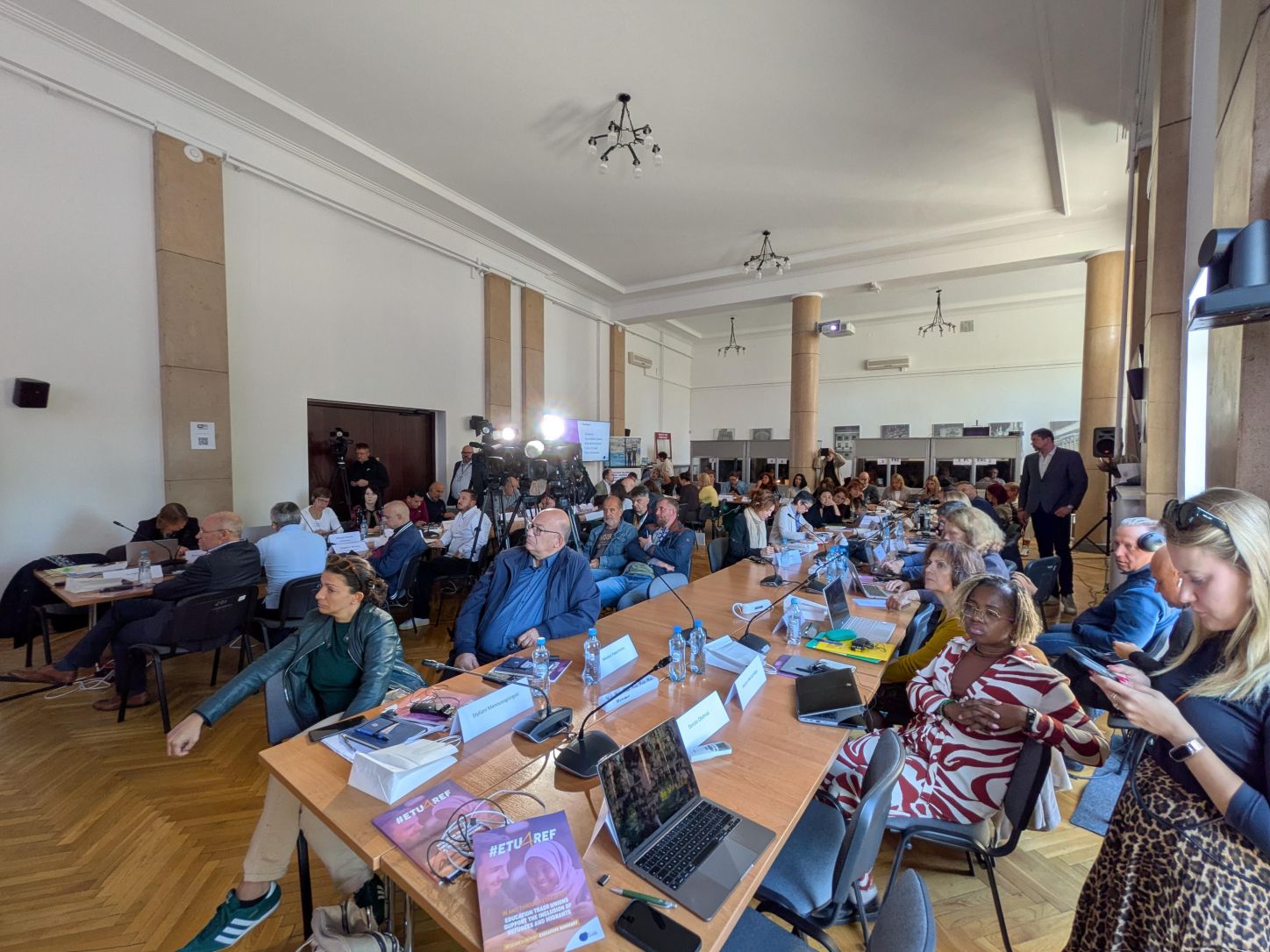
Moving forward
Working groups throughout the two days identified short-term priorities such as recognition of migrant teachers’ qualifications, mental health support for students, and building inclusive school cultures. Longer-term, unions agreed on the need for coordinated advocacy and stronger European cooperation.
Closing the conference, ETUCE President John MacGabhann and European Director Jelmer Evers reaffirmed that education trade unions are committed to building inclusive schools and defending the right of every child to quality education.
